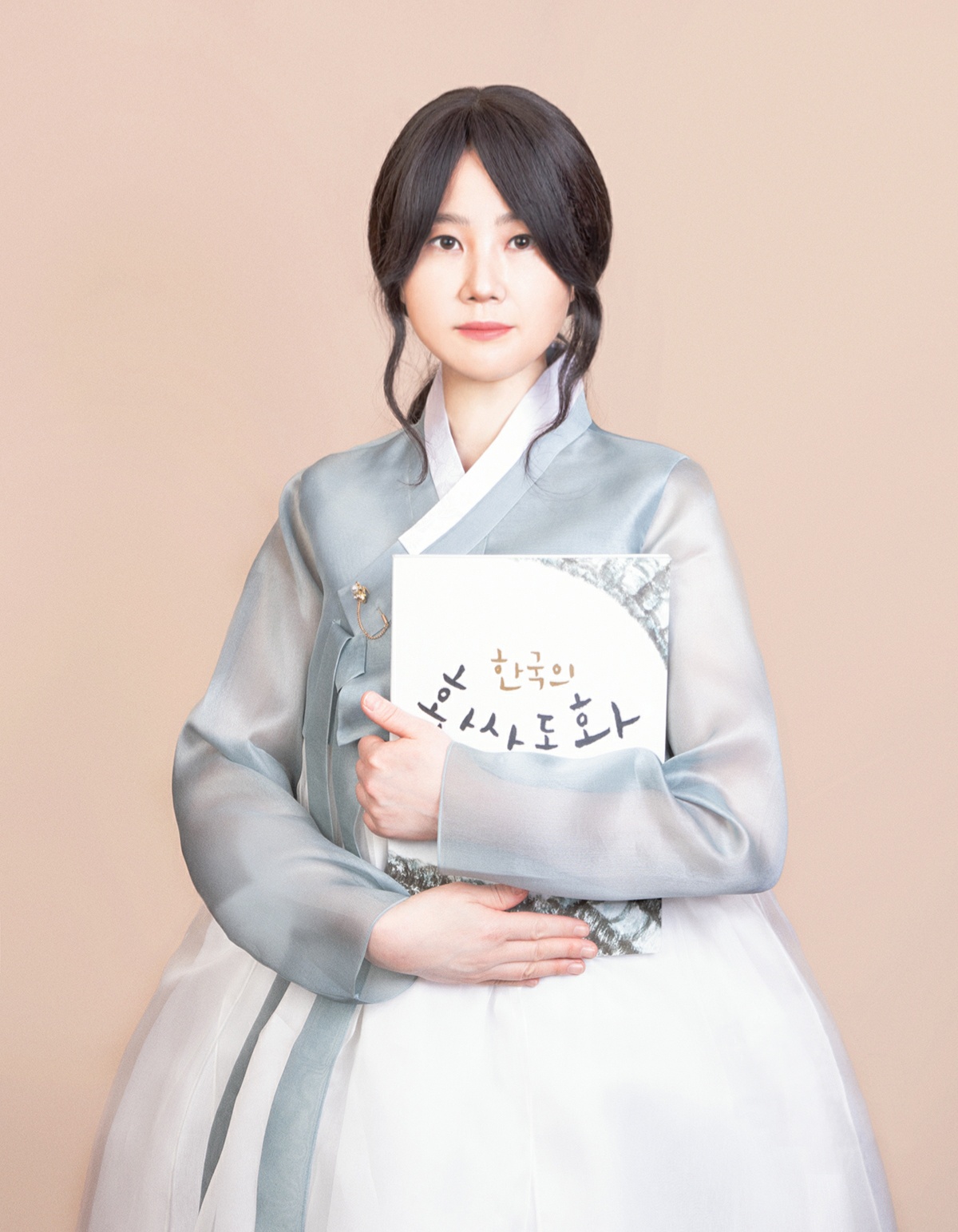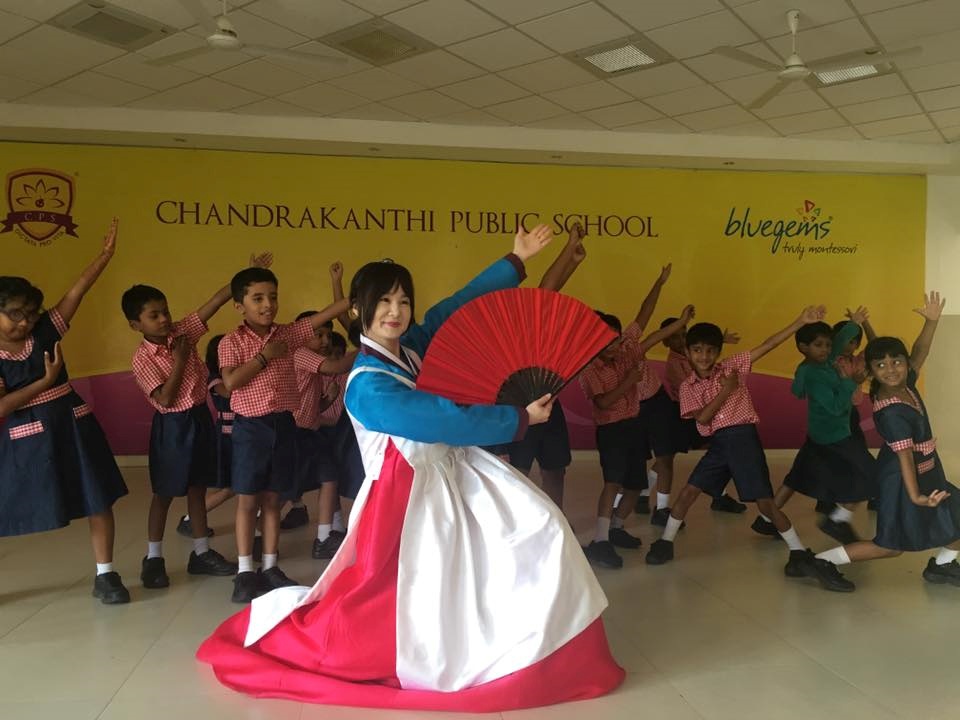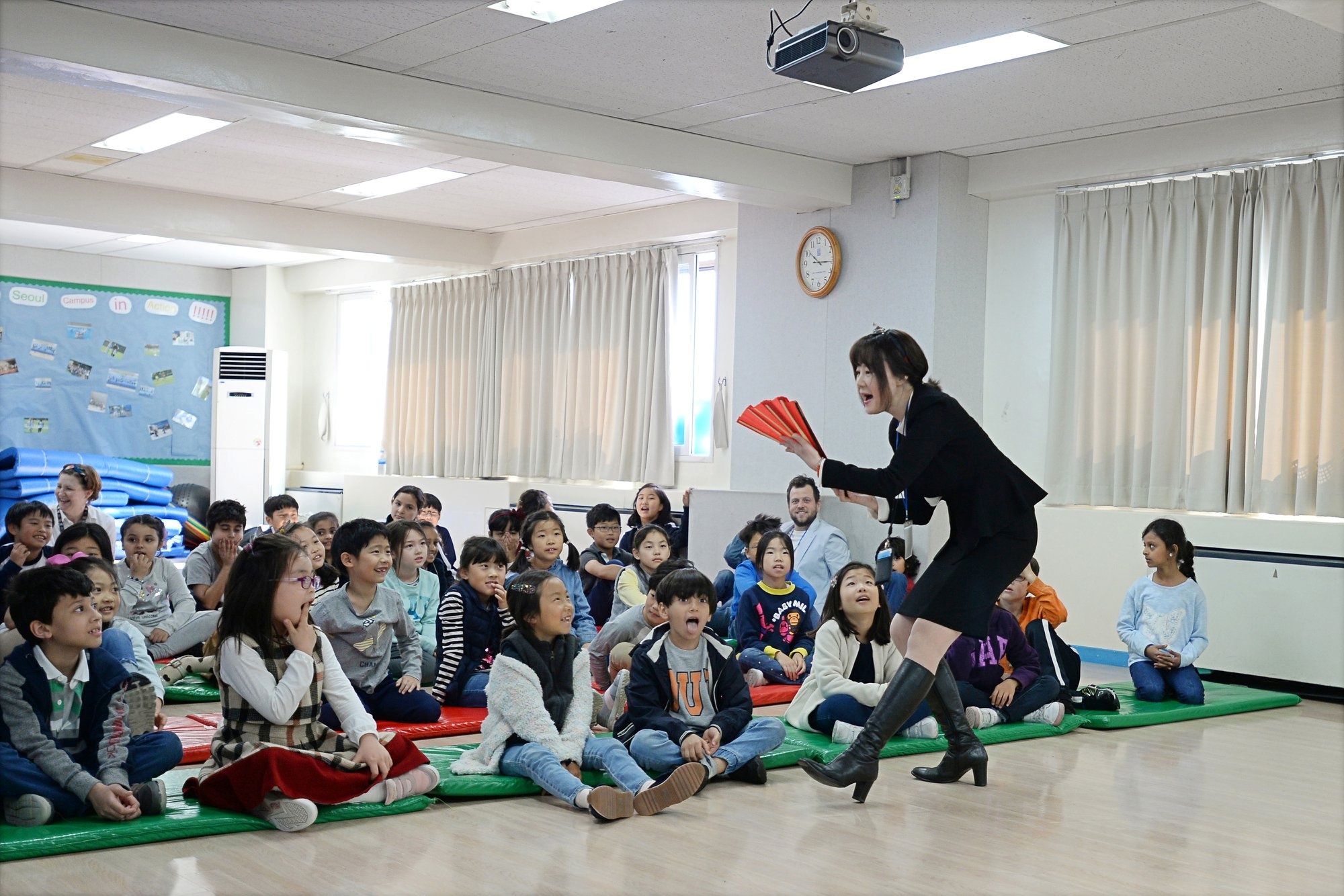- 한국어
- English
- 日本語
- 中文
- العربية
- Español
- Français
- Deutsch
- Pусский
- Tiếng Việt
- Indonesian
By Honorary Reporter Alexandra Kyriazi from Greece
Photos = Alicia Dongjoo Bang
Alicia Dongjoo Bang is a professional storyteller and author from Korea. She began her career at the 2014 Thailand International Storytelling Festival and has since participated in over 10 such international events.
As a fan of Korean tales, I grew interested in Alicia Dongjoo Bang, a professional storyteller and author who also chairs the Korea International Storytelling Festival (KISF), which she founded in 2018.
Bang has presented at many storytelling events and festivals both in Korea and around the world. I grew interested in interviewing her because of her background and work. She also set up the storytelling school Story School in Korea and has published storybooks.
In an email interview on Nov. 24 last year, she shared her thoughts on storytelling.

Alicia Dongjoo Bang
Our ancestors called a story "medicine taken through the ears" that is sometimes more beneficial than real medicine. They thought that the absence of stories would cause malnourishment in life and cause our emotions to dry up.
Do you think that anyone, even children, can tell a great story?
I consider it interesting how children look at the world through the lens of their innocence and wonderful imagination. I believe that adults should listen to children as individuals.
Do you think stories can help people deal with everyday problems?
My father was a doctor of hanyak (traditional Korean medicine) who told stories to his patients to heal their minds and soothe their pain and fear. We all need someone to give us wisdom to live wisely in this harsh world, and I try to tell helpful stories repeatedly to children in class, hoping that they can use the lessons later. Storytelling cannot solve every problem but I think storytellers should tell meaningful tales that help children overcome challenges with wisdom and make the world a beautiful place.
Storytelling is a great way to spread the Korean language and culture. Do you consider yourself a cultural ambassador?
I've always considered myself a representative of Korean culture. Whenever I participate in storytelling festivals, I perform stories featuring Korean history, art, music and geography to give the audience a better understanding of Korea. I believe that stories provide fascinating opportunities for audiences to learn about other cultures.

This is a performance by Bang on Sept. 1, 2017, at a storytelling festival hosted by Chandrakanthi Public School in India.
Does storytelling help language learners to improve their vocabulary?
I think listening to stories is a good way of learning Korean vocabulary since it involves colloquial language used in structures easy to remember. Storytelling can also help those trying to be more consistent in their learning with a feeling of accomplishment that comes with memorizing a short story.
What about the Korean language makes it suitable for storytelling?
Korean is a language with a relatively consistent pitch and rhythm, which makes a story sound relaxing. Other interesting elements include Korean exclamations and onomatopoeic or mimetic words that imitate certain sounds. When I perform abroad, I use these words without translating them, and the audiences like this because they can learn simple Korean words while listening to my story.
What is the difference between telling stories in Korean or English?
A storyteller's personality is important in expressing a story. I am calm most of the time when telling a story in Korean but get livelier while telling one in English.

This scene is from last year's Korean International Storytellers Association meeting on Jan. 30 at Kangwon National University in Chuncheon, Gangwon-do Province.
What are your plans for this year?
The theme for this year's sixth Korea International Storytelling Festival is "Travel." The event will have story performances while taking a trip with storytellers from all over the world. My next goal is to share relaxing tales with the world's best storytellers while walking on the beautiful Olle Trail on Jeju Island.
kalhong617@korea.kr
*This article is written by a Korea.net Honorary Reporter. Our group of Honorary Reporters are from all around the world, and they share with Korea.net their love and passion for all things Korean.